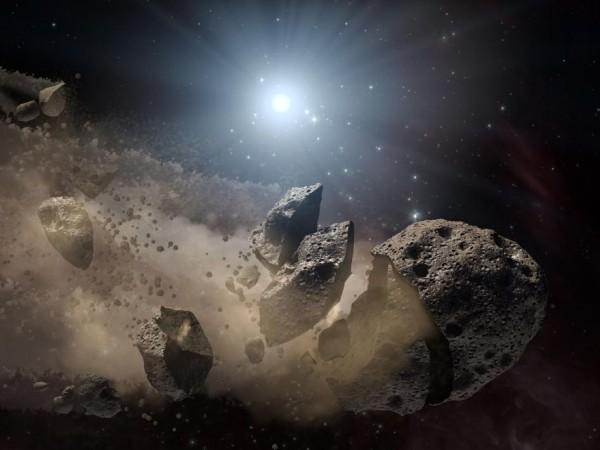It was around 66 million years back that a deadly asteroid hit planet earth with its full fury, thus resulting in the extinction of dinosaurs. Since then, no such deadly event has happened on the blue planet, and this time of cosmic calmness literally played a crucial role in determining the evolution of human beings. However, space experts like Dr. Iain McDonald and Neil deGrasse Tyson strongly believe that deadly asteroid events are not confined to the past, and may happen in the future also. To keep track of potentially hazardous space objects, NASA is operating the Center for Near-Earth Object Studies (CNEOS).
What to do if a deadly asteroid approaches earth?
And now, a new study conducted by Lawrence Livermore National Laboratory (LLNL) former scholar Patrick King has suggested that the usage of nuclear bombs could be an option to protect the blue planet from deadly asteroid strikes.

According to the new study report, if humans fail to get that nudging time and other measures to deflect an incoming asteroid, then the only way left before us to save humanity is to explode the rogue space body using a nuclear bomb.
The research report published in the Acta Astronautica journal also revealed that the usage of nuclear bombs to shatter an asteroid could be only adopted as a last resort, as this method involves lots of challenges.
According to Patrick King, a major challenge in assessing disruption as a strategy is needing to model all of the fragment orbits, and it is way more complicated when compared to the modeling of a simple deflection.
The vitality of a pre-emptive strike
However, several space experts believe that the usage of nuclear weapons may cause more issues than good, especially if radioactive substances start raining down to earth. To prevent this possible scenario, space scientist Natalie Starkey had recently suggested a method, which she calls a 'pre-emptive strike.'
"If the object was one that passed Earth frequently, moving ever closer to impact with each orbit, then it could be blown up in a pre-emptive strike on one of its prior close-Earth visits before the one that was predicted to cause total annihilation, nuking it as it was heading away from Earth. In this way, any radioactive fallout from the destruction wouldn't affect life on Earth," said Starkey.

















